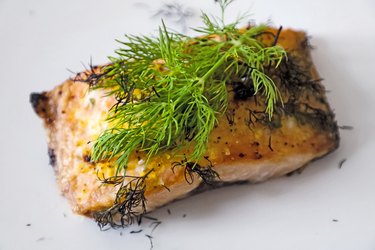
When you're stuck inside but are craving the taste of grilled fish, your broiler can cook fish as quickly as a grill, while developing a crispy exterior and succulent flesh underneath.
Essentially, broiling is the indoor version of grilling, using the same method of indirect dry heat, only with the heat source located above the fish, rather than below.
Video of the Day
Video of the Day
It's one of the best ways to enjoy a healthy seafood meal. It doesn't require fat and calories from oil or butter, and, as CNN reports, broiling and baking are the two methods associated with delivering the most heart-healthy benefits of fish.
Here's how to grill the perfect filet in your oven in six easy steps.
Things You'll Need
Fish
Paper towels
Broiler pan or baking tray and aluminum foil
Nonstick spray
Salt and pepper
Additional seasonings
Instant-read food thermometer
Step 1: Thaw the Fish
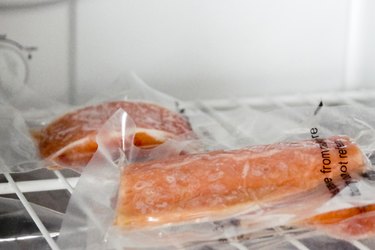
Thaw frozen fish before broiling it so it cooks quickly and evenly. The easiest way is to move it from the freezer to the refrigerator sometime the day before. (You can skip this step if you're using fresh fish.)
Step 2: Preheat the Broiler
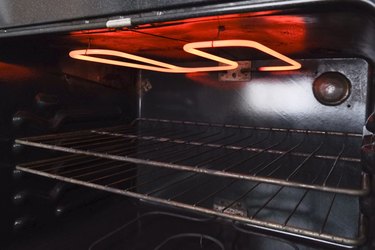
Turn on your oven's broiler about 10 minutes ahead of time to fully preheat it. It gets as hot as your oven can get — usually 500 or 550 degrees Fahrenheit.
When broiling, you don't control the temperature in the oven; instead, you control the distance between the broiler and the surface of the food. It's similar to using hotter and cooler zones on your grill.
Step 3: Prepare the Fish
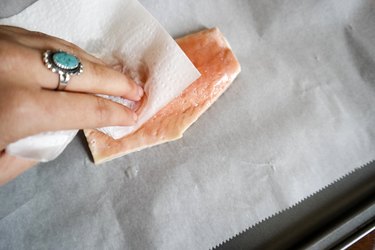
Dab the surface of your fish filet or steak dry with clean paper towels and immediately discard them. Lightly grease the surface of a broiler pan's rack with nonstick cooking spray.
If you don't have a broiler pan, use a foil-lined baking tray and apply nonstick spray. The broiler pan is designed for better heat circulation around food, but fish cooks so quickly that it's not really an issue.
Step 4: Season the Fish
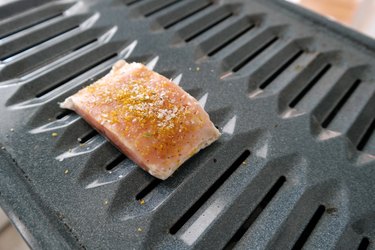
Season the fish to taste with salt and pepper and any other fresh or dried herbs, spices and aromatics you like, or as specified by the recipe you're following.
Center it on the broiler pan or baking tray, skin side down if applicable. If you have a filet with one end that's considerably thinner than the other, tuck the thin end underneath the rest of the filet to create a fairly uniform thickness.
Step 5: Put the Fish in the Oven
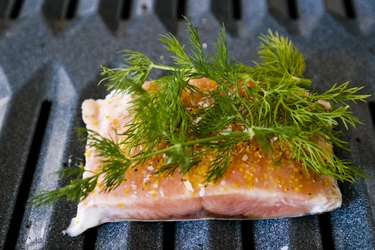
Position your fish on the broiler according to how thick the piece is:
- Less than 1 inch thick: 3 inches below the broiler
- 1 inch thick: 4 inches below the broiler
- 1 1/2 inches thick: 5 inches below the broiler
- Thicker fish: 6 inches below the broiler
Step 6: Cook the Fish
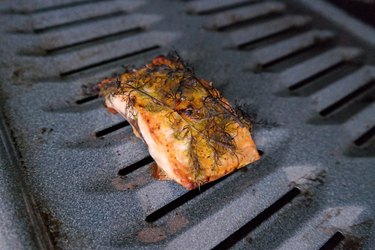
Broil the fish for about five minutes per half inch of thickness. Fish should be cooked to an internal temperature of 145 degrees Fahrenheit as measured with an instant-read food thermometer, according to the U.S. Food and Drug Administration.
But since it's hard to get a reliable reading on thin cuts of fish, to determine doneness, cut into the center of the filet or steak and confirm that the flesh is flaky and opaque all the way through.